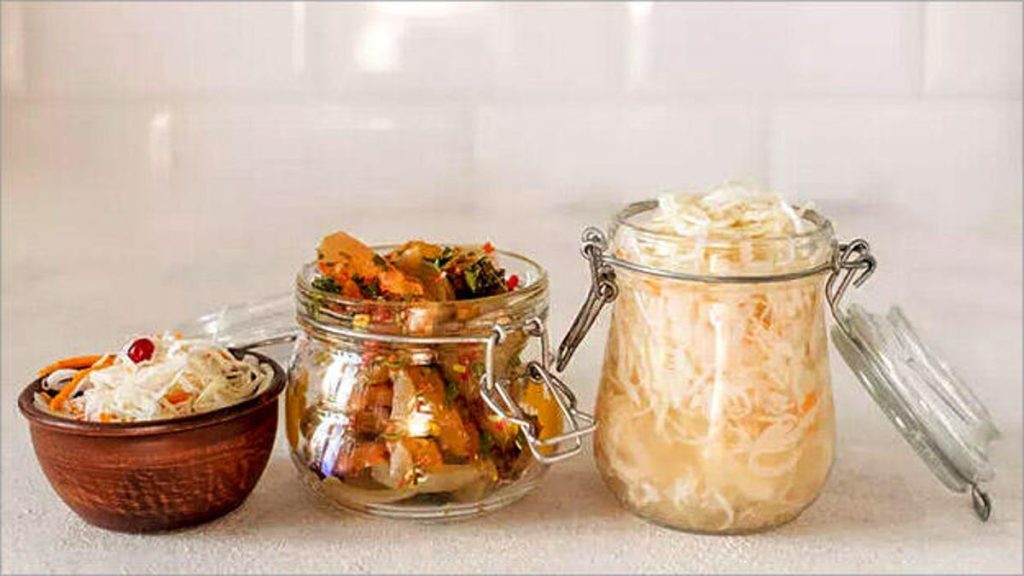A healthy gut is essential for overall well-being, and maintaining a healthy microbiome is key to achieving this. Probiotics are live microorganisms, often referred to as “good bacteria,” that play a crucial role in maintaining a healthy balance in the gut. They promote the growth of beneficial bacteria while suppressing harmful ones. Probiotics can be obtained from fermented foods such as yogurt, kefir, sauerkraut, and pickles, as well as through dietary supplements. Regular consumption of probiotics can support digestion, boost the immune system, improve mood, and enhance overall well-being. These beneficial bacteria contribute to digestive health, which can have a ripple effect on other aspects of health, including mental well-being, heart health, immune function, metabolism, and skin health.
When it comes to incorporating probiotics into your diet, there are a variety of probiotic-rich foods to choose from. Yogurt, kimchi, pickles, sourdough, kefir, kombucha, sauerkraut, miso soup, apple cider vinegar, certain cheeses, pickled vegetables, and buttermilk are excellent sources of probiotics. These foods contain live and active cultures that can help boost the population of good bacteria in the gut, promoting overall digestive health and supporting various bodily functions. Incorporating these probiotic foods into your diet can help improve gut health naturally and contribute to a range of health benefits. It’s important to look for labeling that indicates the presence of live cultures in these foods to ensure maximum probiotic benefits.
Yogurt, a popular probiotic food, contains L. acidophilus bacteria that can promote the growth of good bacteria in the gut. Kimchi, a traditional Korean fermented dish, is rich in probiotic lactic acid bacteria and is associated with various health benefits. Pickles, if they are fermented, can also contain probiotics, providing an easy and accessible source of beneficial bacteria. Sourdough bread made with lactic acid bacteria starter can contribute to improved blood glucose control, reduced cholesterol levels, and other health benefits. Kefir, a fermented milk drink, is a potent probiotic that contains more probiotics than yogurt. Kombucha, a fermented tea, is praised for its ability to support overall health and wellness, thanks to its probiotic content.
Probiotic-rich foods like sauerkraut, miso soup, apple cider vinegar, certain cheeses, pickled vegetables, and buttermilk offer additional options for incorporating beneficial bacteria into your diet. These foods provide a diversity of probiotic strains that can help support gut health and overall well-being. Including a variety of probiotic foods in your diet can help optimize digestive health, enhance the immune system, improve mood, and promote various aspects of overall wellness. By choosing probiotic-rich foods and supplements, you can take proactive steps to support your gut health and enjoy the numerous benefits associated with a healthy microbiome. Remember to consult with your healthcare provider before making any significant changes to your diet or supplementation routine to ensure it aligns with your individual health needs.


